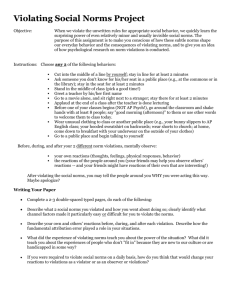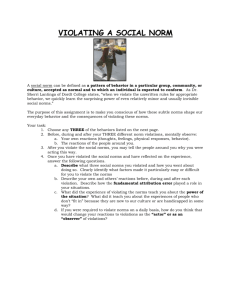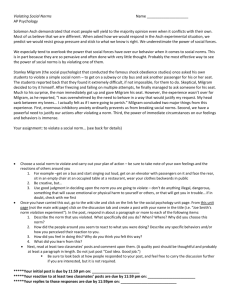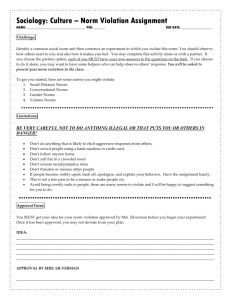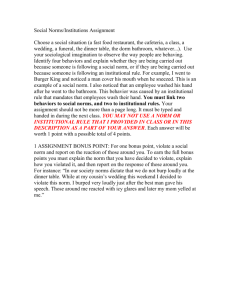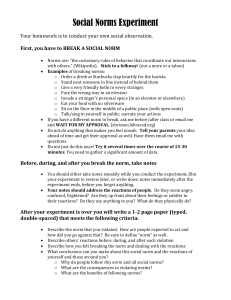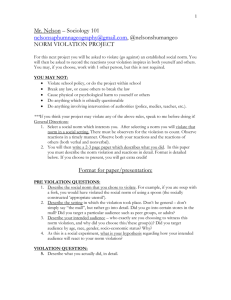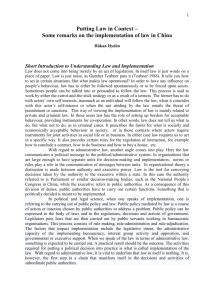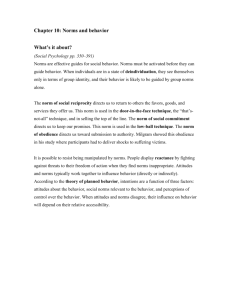Project Psychology 312
advertisement
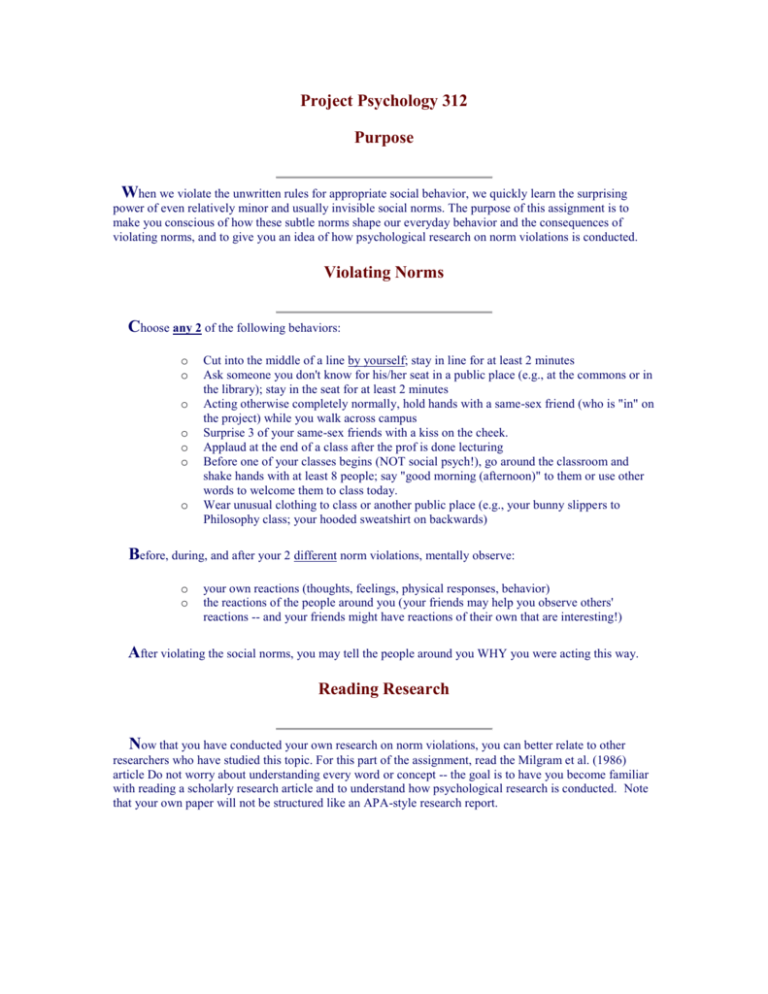
Project Psychology 312 Purpose When we violate the unwritten rules for appropriate social behavior, we quickly learn the surprising power of even relatively minor and usually invisible social norms. The purpose of this assignment is to make you conscious of how these subtle norms shape our everyday behavior and the consequences of violating norms, and to give you an idea of how psychological research on norm violations is conducted. Violating Norms Choose any 2 of the following behaviors: o o o o o o o Cut into the middle of a line by yourself; stay in line for at least 2 minutes Ask someone you don't know for his/her seat in a public place (e.g., at the commons or in the library); stay in the seat for at least 2 minutes Acting otherwise completely normally, hold hands with a same-sex friend (who is "in" on the project) while you walk across campus Surprise 3 of your same-sex friends with a kiss on the cheek. Applaud at the end of a class after the prof is done lecturing Before one of your classes begins (NOT social psych!), go around the classroom and shake hands with at least 8 people; say "good morning (afternoon)" to them or use other words to welcome them to class today. Wear unusual clothing to class or another public place (e.g., your bunny slippers to Philosophy class; your hooded sweatshirt on backwards) Before, during, and after your 2 different norm violations, mentally observe: o o your own reactions (thoughts, feelings, physical responses, behavior) the reactions of the people around you (your friends may help you observe others' reactions -- and your friends might have reactions of their own that are interesting!) After violating the social norms, you may tell the people around you WHY you were acting this way. Reading Research Now that you have conducted your own research on norm violations, you can better relate to other researchers who have studied this topic. For this part of the assignment, read the Milgram et al. (1986) article Do not worry about understanding every word or concept -- the goal is to have you become familiar with reading a scholarly research article and to understand how psychological research is conducted. Note that your own paper will not be structured like an APA-style research report. Writing Your Paper In about 3-4 double-spaced typed pages, do each of the following: Describe what 2 social norms you violated and how you went about doing so; clearly identify what channel factors made it particularly easy or difficult for you to violate the norms (e.g., you picked on a freshman instead of a senior) Describe your own and others' reactions before, during, and after each violation. Describe how the fundamental attribution error played a role in your situations. Compare and contrast the methods and results of your own norm violation study with that of Milgram et al.'s. Even though you may not have studied their particular norm violation, you can still relate to the norm violations aspect of what they did. What did the experience of violating norms teach you about the power of the situation? What did it teach you about the experiences of people who don't "fit in" because they are new to our culture or are handicapped in some way? If you were required to violate social norms on a daily basis, how do you think that would change your reactions to violations as a violator or as an observer or violations? Evaluation Criteria Your paper will be evaluated on the following criteria (the paper is worth 50 points). The best papers will include vivid descriptions of the situations and reactions, thorough comparisons of one's own with Milgram et al.'s research, and rich insights into the implications of this experience. Format requirements are met (paper is typed, double-spaced, few mechanical or grammatical errors) Violation requirements are met (2 norms are violated) All questions / content requirements are addressed in a thoughtful and insightful way
